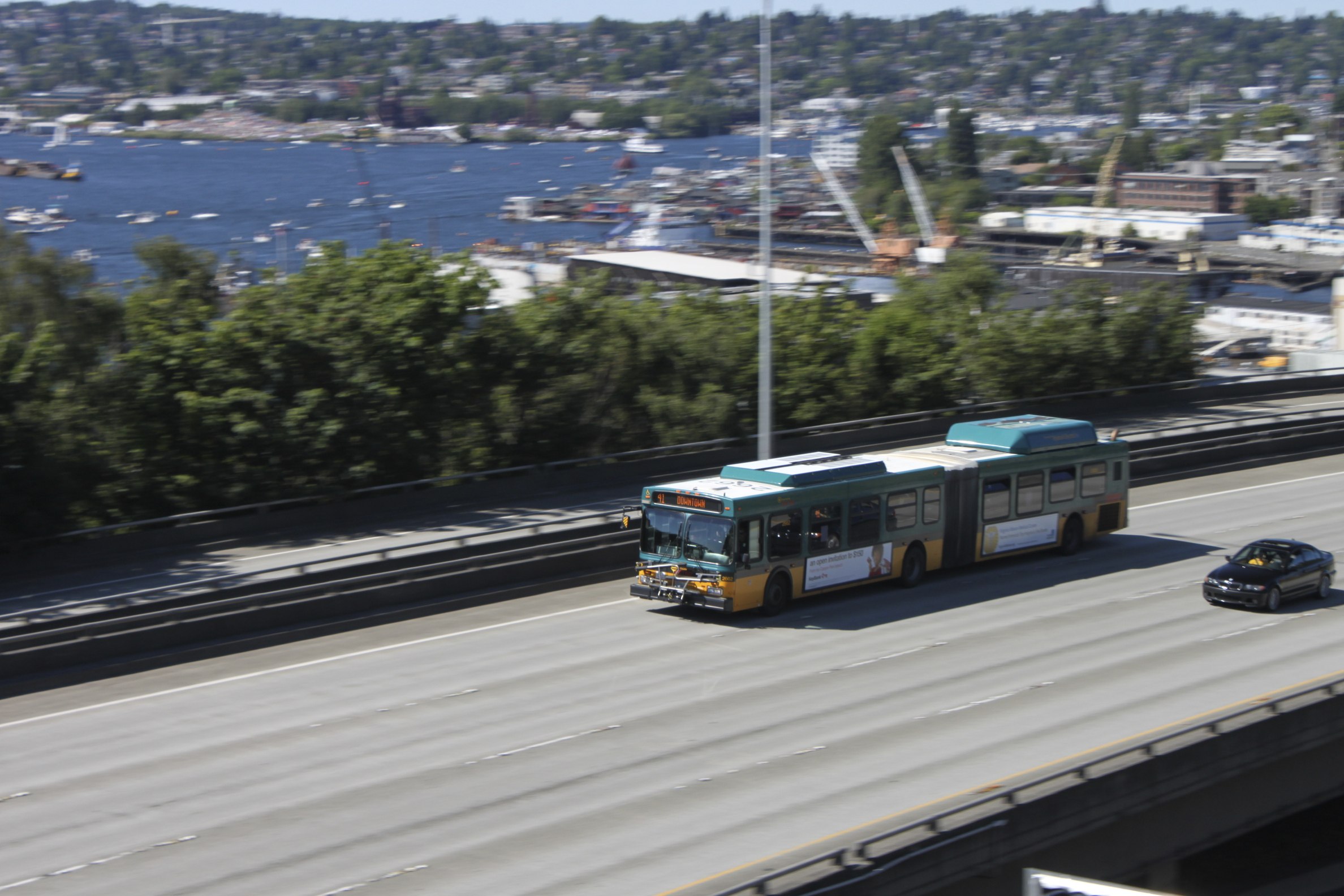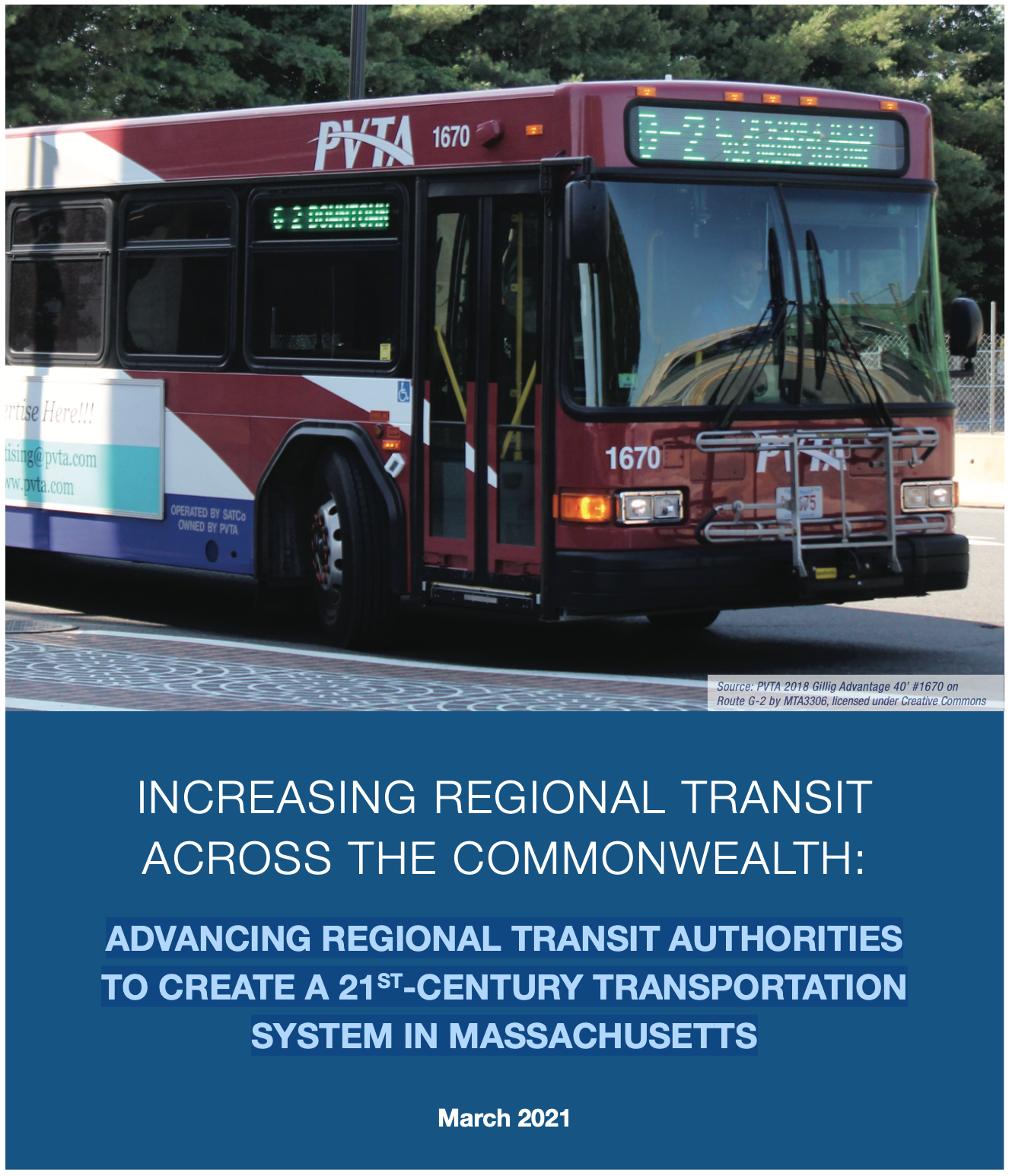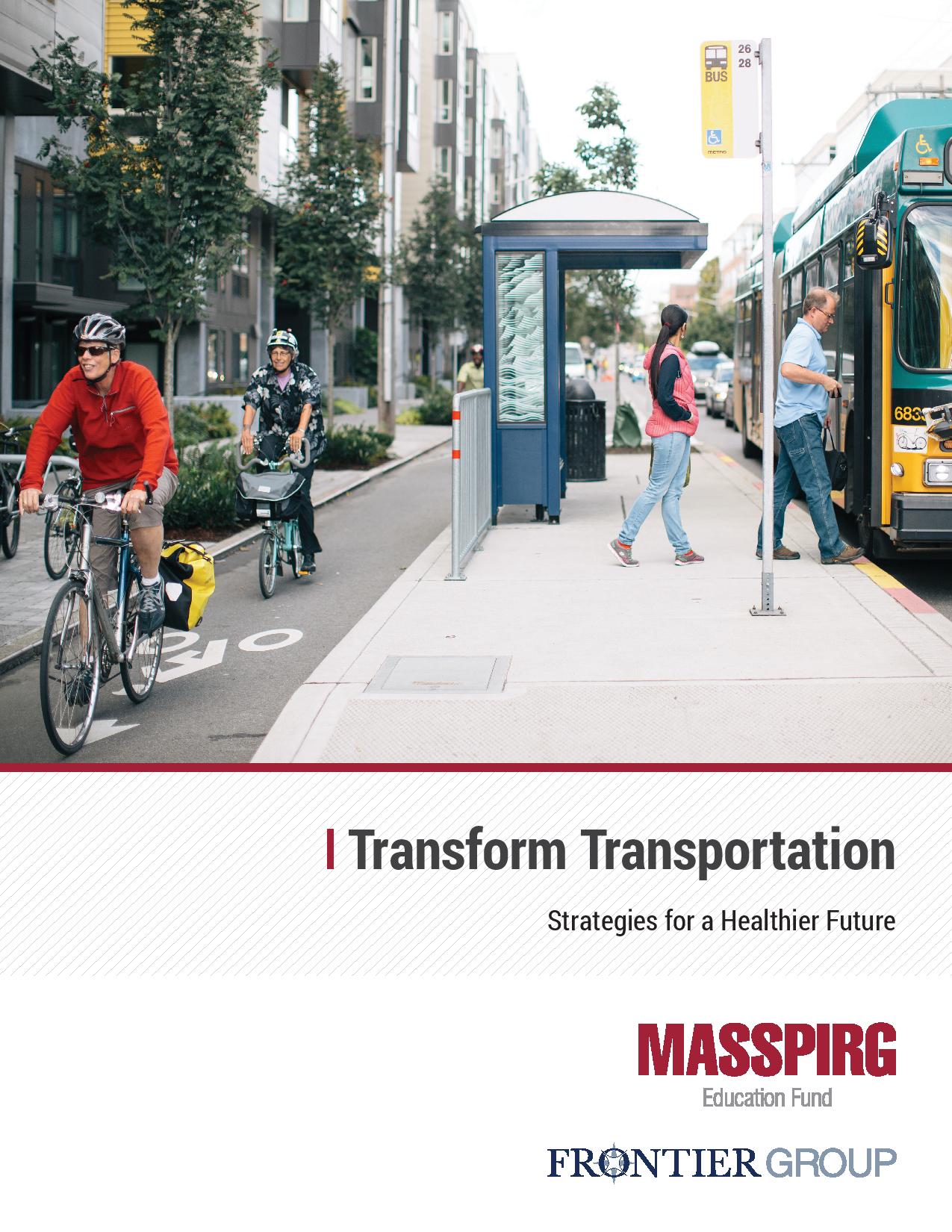
Increasing Regional Transit Across the Commonwealth:
Advancing Regional Transit Authorities To Create a 21st-Century Transportation System in Massachusetts
Massachusetts needs strong, statewide public transportation. This was true before the novel coronavirus (COVID-19) crisis hit the state in March of 2020, and it will still be true after the crisis is over.
Operating primarily outside of the Greater Boston region, 15 Regional Transit Authorities (RTAs) provide public transportation service to millions of Bay Staters. RTAs are a lifeline for many in Massachusetts who do not own cars; for frontline workers; for employers whose workforce needs transit; for students and educational institutions; and for health and wellness.
But they can be so much more.
In 2019, the Task Force on Regional Transit Authority Performance and Funding produced a visionary report with 24 recommendations for improving the RTAs. The recommendations addressed funding, governance, service and sustainability and laid out the beginnings of a roadmap towards a better transportation future for Massachusetts.
But how well are we adopting and implementing those recommendations? And are we doing enough to achieve the vision of a better, more connected Commonwealth?

MASSPIRG Education Fund
Massachusetts needs strong, statewide public transportation. Regional public transit is essential for mobility and economic opportunity; to reduce congestion and protect our climate, air quality and health; and to encourage strong and vibrant communities. This was true before the novel coronavirus (COVID-19) crisis hit the state in March of 2020, and it will still be true after the crisis is over.
Operating primarily outside of the Greater Boston region, 15 Regional Transit Authorities (RTAs) provide public transportation service to millions of Bay Staters. RTAs are a lifeline for many in Massachusetts who do not own cars; for frontline workers; for employers whose workforce needs transit; for students and educational institutions; and for health and wellness.
But they can be so much more.
The RTAs can be mobility managers for their regions. They can provide fast, frequent and reliable transportation options that people get out of their cars. They can help us alleviate traffic congestion, close opportunity gaps, and reduce air pollution and greenhouse gas emissions. But to get there, we need to adopt a vision for the future of the RTAs and provide them with the resources necessary to achieve that vision.
The Task Force on Regional Transit Authority Performance and Funding began that legwork by producing a visionary report with 24 recommendations for improving the RTAs. The recommendations addressed funding, governance, service and sustainability and laid out the beginnings of a roadmap towards a better transportation future for Massachusetts.
But how well are we adopting and implementing those recommendations? And are we doing enough to achieve the vision of a better, more connected Commonwealth?
A full accounting of the RTA Task Force recommendations, and whether there has been subsequent action taken, is provided in the appendix of this report. While there has been progress on a number of the recommendations, several others have yet to be acted on in any substantive way.
Among the recommendations that have not yet been fully adopted, this report recommends that the following be prioritized:
-
Adopt an automatic annual Consumer Price Index (CPI) increase in the base RTA operating budget, setting a baseline benchmark of $94 million in FY22.
-
Continue to develop and improve the “reinvigorated RTA Council,” using it as a forum to tackle the big picture issues identified in the RTA Task Force report.
-
Begin to pilot and implement more cross-RTA services and better coordination and connection between authorities, including with the MBTA.
There are also a number of additional – or interim – recommendations to add, including:
-
Reform the distribution of operating funds so that they are based on a more relevant and realistic picture of each RTA’s budget and needs, and so that they are designed to help RTAs achieve the service and performance goals set out in the RTA Task Force report.
-
The Commonwealth should develop a statewide transit plan with a vision for the future of public transportation in Massachusetts, including setting baseline expectations for service in different types of geographic areas.
-
Farebox recovery ratio should no longer be used as a performance metric for the RTAs.
-
MassDOT and the RTAs should work together, with the Central Transportation Planning Staff, to complete an electric bus feasibility study, and all RTAs should begin wider scale pilots of electric bus implementation as soon as possible.
Topics
Find Out More


Green schools guide

Why privacy matters – even if you’ve got nothing to hide
